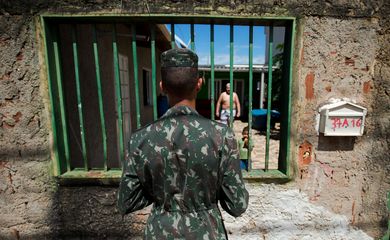Brazil's vaccines safe, says PAHO/WHO Brazil


According to the organization, the rumors associating vaccines for pregnant women with the microcephaly outbreak are false

The Pan American Health Organization/World Health Organization (WHO) in Brazil issued a statement Monday (Feb. 15) assuring the vaccines it recommends for pregnant women that are provided by Brazil's public healthcare system (SUS) “are safe and effective.” According to the organization, the rumors associating vaccines for pregnant women with the microcephaly outbreak are false.
The clarification is a response to rumors about alleged cases of pregnant women being administered expired vaccines or vaccines for rubella and having babies with the condition.
In is note, the WHO said rubella vaccine is not among vaccines recommended for pregnant women and its administration to women unaware of pregnancy has not resulted in negative consequences for the fetuses. Over 70 million immunizing doses have been administered to women at reproductive age in Brazil.
According to the organization, other vaccines, including those for neonatal tetanus and influenza, can also be administered to pregnant women safely for the baby. The WHO stressed the importance of the population fully following their recommended immunization schedule.
Brazil's Ministry of Health had previously denied the rumors and maintained that pregnant women should continue to take the vaccines recommended for them.
In August 2015, the ministry began to note an unexpected increase in microcephaly in the Northeast region. In late November, it confirmed the cases were related to infection of pregnant women with Zika virus, which was reported to occur in Brazil as of 2015.
Translated by Mayra Borges
Fonte: Brazil's vaccines safe, says PAHO/WHO Brazil



